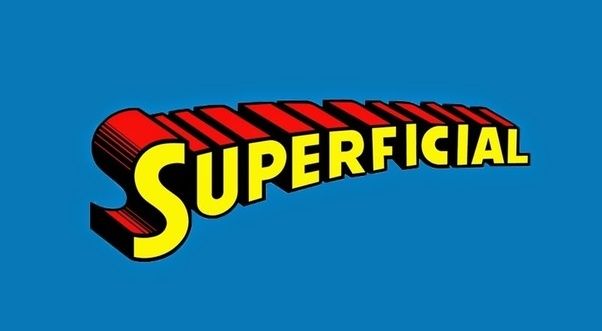A Superficial Approach
Computer science likes solving simple models, but the world is complex, and the job isn't disruption

Yesterday, a comment on the post about the summary judgment against the Internet Archive’s CDL approach made me think about why technologists and computer science people keep blowing past norms and underestimating complexity. I’ve interacted with a lot of them, inside and outside of Silicon Valley, and there is some misplaced confidence in general among those who routinely break down problems and write solutions — as if any problem they start to understand is sufficiently scoped for them to solve it, or will ultimately bend to their will.
After yesterday’s comment appeared, I spent a little time crafting a response — one which surprised me, as writing out ideas often can:
The computer science approach often replaces a complex reality with a simplistic model, and then programs forward from that, even if bad assumptions were made or necessary assumptions missed. Brewster Kahle has twice been burned by such an approach. This computer science methodology, combined with the scale of the Internet, has been a defining characteristic of our age. Sometimes it works well enough (there are still problems with the Wayback Machine, including deep linking to misinformation that was taken down but which is preserved there), but other times, it's illegal or destabilizing to democracies. More humility might lead to a recognition that modeling a system based on studying it for 30-90 minutes isn’t going to work well, and that consulting real experts might help make things go better.
Computer science is a great, cool field, but it has been treated with too much veneration, and it needs an infusion of humanities requirements (philosophy, history, literature, social studies) to make its practitioners and their outputs relevant and safe in a world that is more complex and established than some graduates seem to think — and to also appreciate that, as Douglas Adams said:
We are stuck with technology when what we really want is just stuff that works.
The beauty of this quote is that it deftly puts the user in the driver’s seat, with a whiff of not wanting to create trouble for anyone. Remember, the entire “disruption” narrative was about new ways to make the same thing people already liked and wanted — motorcycles, steel, computer storage. Transmogrifying the word into an act of disrupting our social contracts is too far, and both reckless and ignorant. What people want is progress, improvement, quality, trust, and peace of mind.
People are being stressed all the time by superficial technologies that are sprung on society without adequate comprehension or rigorous research cycles to ensure they don’t do harm.
We just want stuff that works. And discovering what really works takes humility and a broader view of factors than often happens when technologists are involved.